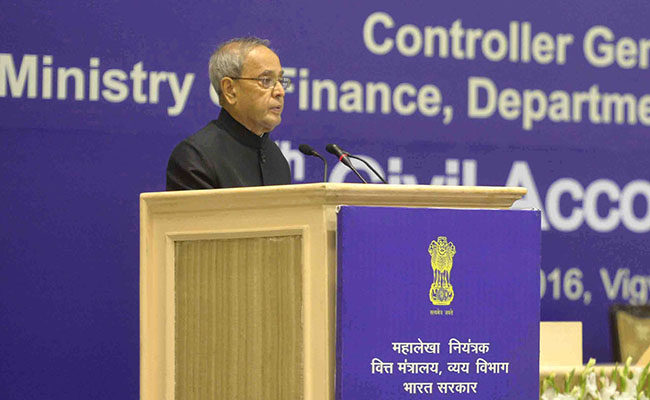The government places the highest importance towards the DBT mode of payments as the preferred mode for reaching out to the financially disadvantaged, says President of India
Source: PTI

President Pranab Mukherjee addressing the inaugural of the 40th Anniversary Celebrations of Indian Civil Accounts Service, in New Delhi on Tuesday
March 01, 2016 | 05:23pm IST.

 President Pranab Mukherjee addressing the inaugural of the 40th Anniversary Celebrations of Indian Civil Accounts Service, in New Delhi on Tuesday
President Pranab Mukherjee addressing the inaugural of the 40th Anniversary Celebrations of Indian Civil Accounts Service, in New Delhi on Tuesday
 President Pranab Mukherjee addressing the inaugural of the 40th Anniversary Celebrations of Indian Civil Accounts Service, in New Delhi on Tuesday
President Pranab Mukherjee addressing the inaugural of the 40th Anniversary Celebrations of Indian Civil Accounts Service, in New Delhi on Tuesday